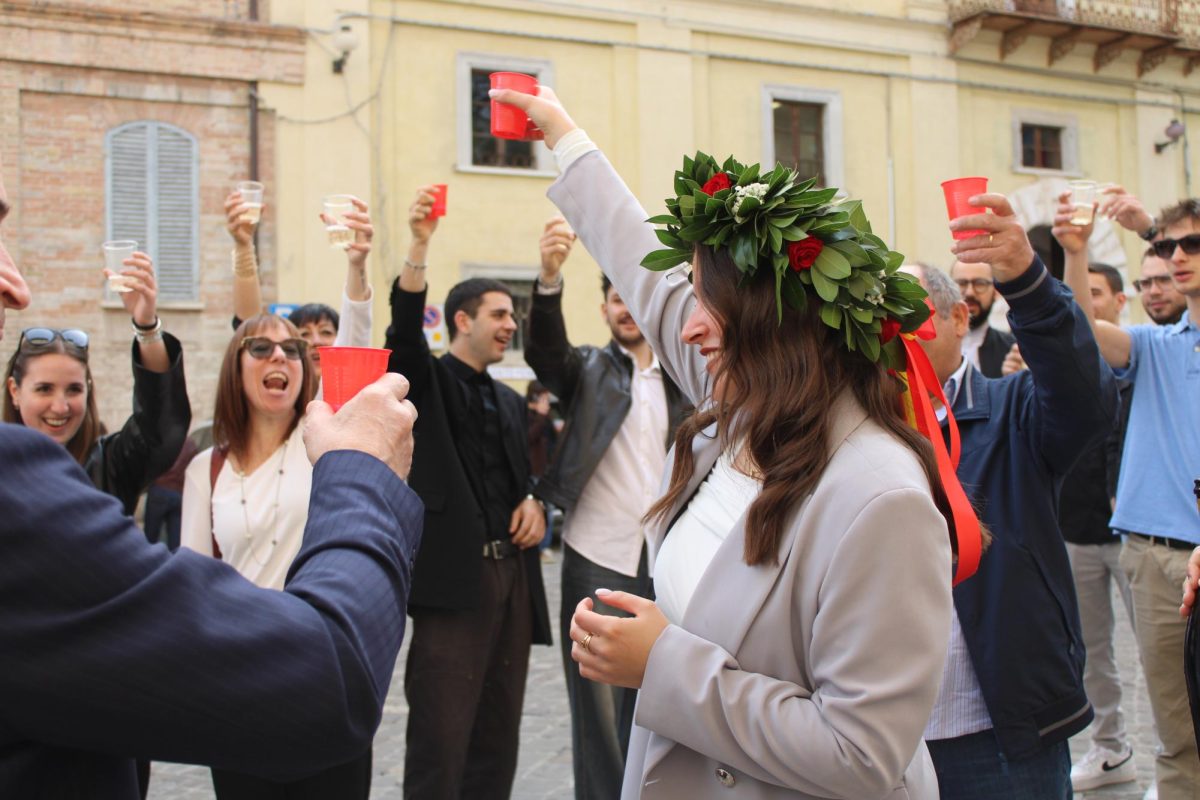Signs, portents and laundry
September 25, 2000
Last Friday someone took my clothes from the laundry at University Village. It felt like a smack, the kind of thing you are incredulous about. I kept looking around until I was convinced my laundry wouldn’t reappear behind a closed door or under a table. I decided not to file a report. I was not even angry, just disappointed. But what the hell? Ames is as good a place for thieves as it is for students, professors and retired people. Maybe it was the miracle of the vanishing laundry where a single mother was relieved of the hard work of washing her kids clothes. It might as well have been a heavenly blessing. I kept drawing new pictures of the cause of the theft until I understood the real meaning. This was another sign of the end of the world. One of the small ones. Growing up, I was taught to identify the signs of the end of the world. The Book of Revelations was a reference manual to the doom that hung above us like the ax of the executioner. The fears were elevated to new heights as my consciousness developed. By my teen years, doom-worship became a new cult among my class who embraced a new philosophy in which fear determined behavior. I was dragged along with the current. I remember visiting a small shop located in the center of town, next to the plaza where the roosters announced the new day and the death of its chickens indifferently. We could breath the air of anticipation; the expectation of catastrophe announced in tiny comic books not intended to make us laugh. These doom-books were sold for a quarter. On its pages we could see illustrations of helicopters surveying residential areas where the roofs were marked by giant numbers. In its pages, these small magazines would always portray the penalties Christians would endure at the hands of a yet-to-be-pronounced enemy. The message told us to expect jail or death in the near future because the end had a date. It had been appointed for 1983. We only dared whisper the news we’d learned, but the word spread like wildfire, and we learned to live in constant fear of the cataclysm and suffering we were to endure until the end. You could imagine the effect this produced in a bunch of teenagers. I admit in some way my classmates and their message influenced my life. Often I would find myself searching the sky with apprehension. At times, a peculiar cloud formation or a shooting star would provoke panic in me. These experiences were kept secret. Nobody knew from my terrors. I avoided exposing my family to such a terrifying view of the future. The merchants of doom were truly effective. Our youth had been touched by a premonition that would shape the rest of our lives. Among my friends, I think they would agree that these beliefs, successfully cultivated in the soil of our ignorance, contributed for us to live in a frantic manner. Most of us understood we would not reach our thirties and would have to take a taste of life subito. Many married young, had children and became professionals in less that a decade. We were running against time; the time when we would have to confront the final judgment. I now recall with a silent smile the images I created in my mind’s eye during those years. I pictured myself standing in shame before a celestial court. The guilt I used to feel as a result of my strict education, made the results of this judgment invariably negative for me. With time my worries receded. The selected date had passed without major incidents. The usual conflictive way in which earthly events go by remained the same. When I finally reached my thirties, the concept of the end of the world gained a new meaning. An existentialist outlook stood in the place of superstition. A new dread invaded my thoughts; my existence had been meaningless. Surviving had been the mode in which I operated during my twenties, but the threats engraved in my subconscience by external actors were mild compared to my self exam. The fear of not leaving a legacy or acting on my convictions grew steadily. I’m trying to deal with those as I speak. Meanwhile, I have started to learn about renovated pictures of the fateful future we’ll have to confront. Like in my teenage years, the followers of these philosophies strive to make me understand the signs of the end of the world. The small signs they announce such as starvation, war and earthquakes have been with us from the day the first human developed conscience. The difference resides in the media that makes all of us aware of the events developing in the most remote places of earth. The agitation I carried for a long time has been replaced with patience. I learned to appreciate each day as a new beginning and, at night, my hopes are that I have contributed the best of myself to make the world a better place. Going back to my kids’ clothes, it’s great that I learned that losing some baggage is not the end of the world, but I hope whoever took them uses them well. If that person’s need was greater than his honor, he has earned them at the highest price.
















